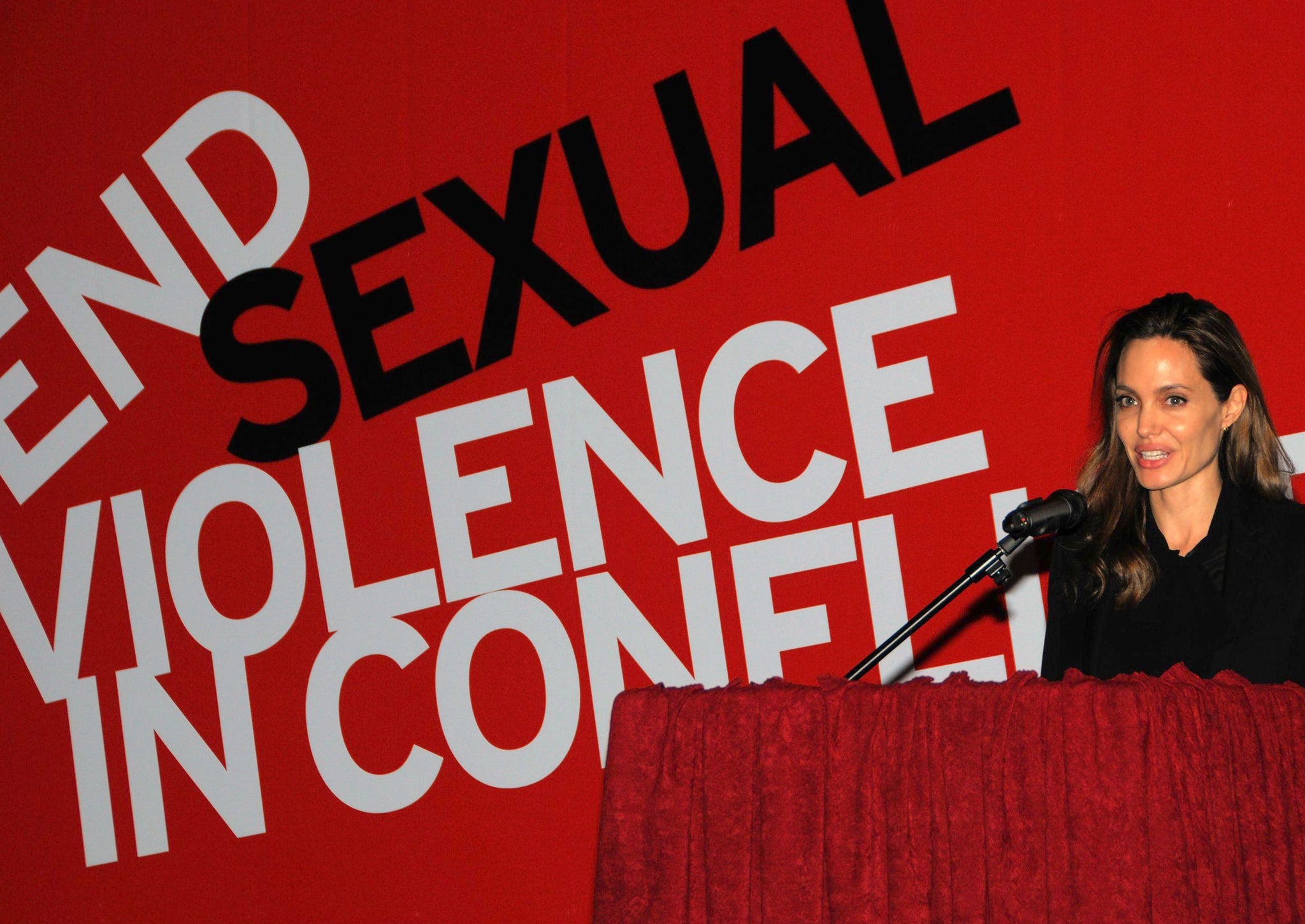Voices in Danger: How can we prevent journalists from being sexually assaulted in conflict zones?
The UK government has been the world leader in speaking out against these heinous crimes, but there's still more work to be done

Female journalists in the field are in a powerful position to speak out against sexual violence that takes place in high conflict zones against women who can't; but, ironically, they can often also become victims themselves.
One female journalist commented that in some countries, “It is no longer that a woman might be sexually violated or harassed, but that a woman now will be sexually violated if attempting to report on, or be part of, protests taking place.” While another said: “In some countries some local media groups have stopped sending local female reporters to cover protests due to the systematic sexual violence against female journalists and activists.”
The International Women’s Media Foundation (IWMF) and the International News Safety Institute (INSI) co-published Global Report 2014 which found that “acts of sexual violence are often preceded by harassment and more than one-third of all reported incidents took place in the field.” Perpetrators, classified as "others", included protesters, politicians, diplomats, event organisers and even some government authorities.
Shockingly, the report found that the majority of threats, intimidation and abuse comes from within media organisations, “perpetuated most often by male bosses, supervisors and co-workers.”
Though sexual violence happens everywhere to both men and women, some countries and cultures have higher incidents of sexual attacks against women journalists, and women in general, and where the attackers are not being held to account.
The combined research effort between IWMF and INSI further revealed that, “Although the number of journalists killed in 2013 was lower than in 2012, the number of journalists subjected to assault, threat, attack either directly or by threats to their families and loved ones, be they physical, verbal or digital, show no sign of abating.”
A spokesperson at the INSI said that it is very difficult for survivors of sexual violence come forward due to the shame and stigma many victims feel after being assaulted. Media attention, however, has helped to raise global awareness about the abhorrent and systematic sexual violence that takes place in conflict, and how such a war crime has been ignored until very recently.
The UK government has been the world leader in speaking out against these heinous crimes, challenging the cultures and governments under which these crimes take place and are ignored. In June 2014, the former Foreign Secretary William Hague initiated the Preventing Sexual Violence in Conflict (PSVI) campaign to address these issues.
Experts and survivors of sexual violence who attended the PSVI Summit in June 2014, repeatedly highlighted their concern over countries who have legislation in place to prosecute the perpetrators of sexual violence but lack the political will to enforce it. They cite deeply embedded cultures of corruption and cast systems among a long list of problems that can negate all national and international safety nets put into place to help victims of sexual violence and prevent it from taking place further.
The PSVI Summit ultimately concluded that:
• Governments need to exercise political will to implement laws already in place.
• Sexual violence in conflict is used to subordinate a specific group and shame the victims into silence.
• More partners need to be brought to the table when combating sexual violence in conflict.
The report found that several media personnel “voiced concern that their news organisations ill prepare journalists, both men and women, to mitigate risk related to their work,” with more than two-thirds of the respondents reporting that no training was available to them.
A strong, independent and free press, globally, can and does already report on such crimes but with additional training and awareness of sexual crimes in conflict zones, all journalists can further help protect themselves, local victims and hold governments to account.
For further information on Global Report 2014 co-published by The International Women’s Media Foundation (IWMF) and the International News Safety Institute (INSI) go to : http://www.iwmf.org/our-research/global-report/ .
For further review of their work go to: http://www/iwmf.org and http://www.newssafety.org/about-insi

Join our commenting forum
Join thought-provoking conversations, follow other Independent readers and see their replies